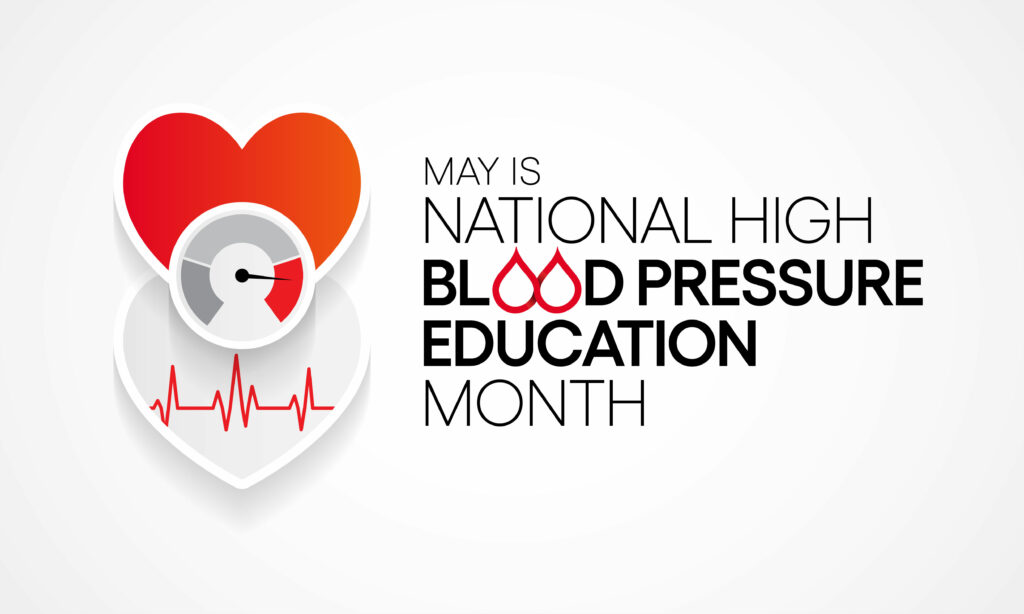May is National High Blood Pressure Education Month, a time to raise awareness about the dangers of high blood pressure and the importance of prevention and treatment. High blood pressure, also known as hypertension, is a common condition that affects millions of people around the world. It is a leading cause of heart disease, stroke, and other serious health problems. Fortunately, high blood pressure can be managed with lifestyle changes and medication. In this blog post, we will explore the causes, symptoms, and treatment of high blood pressure.
What is High Blood Pressure?
Blood pressure is the force of blood pushing against the walls of your arteries as your heart pumps blood throughout your body. When this pressure is consistently high, it can damage your arteries and lead to serious health problems. Blood pressure is measured using two numbers: systolic pressure (the top number) and diastolic pressure (the bottom number). A normal blood pressure reading is around 120/80 mm Hg or lower. High blood pressure is defined as a reading of 130/80 mm Hg or higher.
Causes of High Blood Pressure
High blood pressure can be caused by a variety of factors, including:
- Genetics: Some people are more likely to develop high blood pressure because of their family history.
- Lifestyle: Certain lifestyle factors, such as a diet high in salt, alcohol consumption, smoking, and lack of exercise, can contribute to high blood pressure.
- Age: Blood pressure tends to increase as we get older.
- Medical conditions: Certain medical conditions, such as sleep apnea, kidney disease, and thyroid problems, can increase the risk of high blood pressure.
Symptoms of High Blood Pressure
High blood pressure is often called the “silent killer” because it typically has no symptoms. In some cases, people with high blood pressure may experience headaches, nosebleeds, or shortness of breath. However, these symptoms are not specific to high blood pressure and can be caused by many other conditions.
Treatment of High Blood Pressure
If you have high blood pressure, your doctor may recommend lifestyle changes, such as:
- Eating a healthy diet: A diet rich in fruits, vegetables, whole grains, and lean protein can help lower blood pressure.
- Exercising regularly: Aim for at least 30 minutes of moderate-intensity exercise, such as brisk walking or cycling, most days of the week.
- Quitting smoking: Smoking can damage your blood vessels and increase your risk of heart disease and stroke.
- Limiting alcohol consumption: Drinking too much alcohol can raise blood pressure and damage your heart.
In addition to lifestyle changes, your doctor may also prescribe medication to help lower your blood pressure. There are many types of blood pressure medication, including diuretics, ACE inhibitors, calcium channel blockers, and beta-blockers. Your doctor will determine the best medication for your individual needs based on your health history and other factors.
High blood pressure is a serious health condition that affects millions of people worldwide. It can increase the risk of heart disease, stroke, and other serious health problems. Fortunately, high blood pressure can be managed with lifestyle changes and medication. If you have high blood pressure, it is important to work with your doctor to develop a treatment plan that works for you. By taking steps to lower your blood pressure, you can reduce your risk of complications and improve your overall health and well-being.
For more resources: https://www.heart.org/en/health-topics/high-blood-pressure


